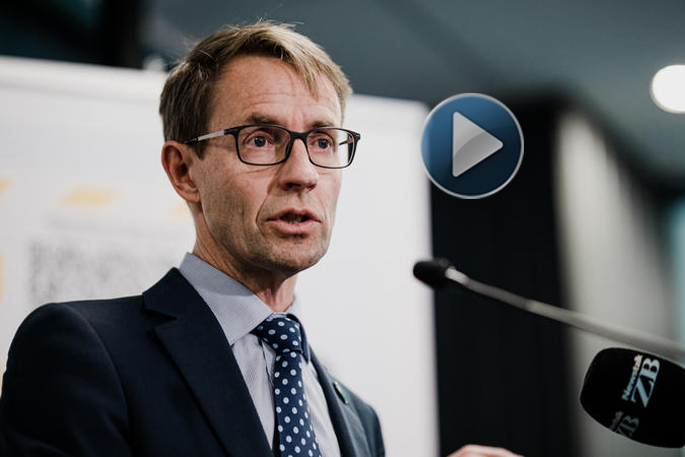UPDATED: Director-General of Health Dr Ashley Bloomfield is hosting a media briefing to provide an update on the response to Covid-19.
He is joined by the Public Health Agency's Deputy Director-General Dr Andrew Old.
Dr Bloomfield says there are 10,772 new community cases today, with 788 hospitalisations and 21 deaths to report.
He says case rates have increased about 4.5 percent in the past week, but the rate of increase has slowed and compares to a 33 percent increase the previous week.
"Our case rates and wastewater results do show that the cases are increasing across all regions around New Zealand," he says.
"Our hospitalisation rate for the week to 17 July increased by 28 percent, so that's quite a significant increase."
He says while the initial Omicron outbreak was largely focused around younger age groups, rates are now higher in older folk - particularly those aged over 65.
The number of cases in aged residential care has increased from 729 to 793, he says.
"That was a significant increase but again it was slower, quite a bit slower, than again the previous week."
He says the figures reinforce that the surge is being driven in particular by the BA.5 subvariant, and "we're fully expecting that will have increased and will continue to do so".
It's consistent with experiences overseas including Australia but also countries in the northern hemisphere now experiencing heatwaves in summer, he says.
Two community cases of the BA.2.75 subvariant have been found in Auckland, he says - the first community cases of the subvariant - but both are linked to known cases at the border and are isolating at home. This adds to the previous six cases of the subvariant found at the border.
"At this stage we don't see anything which would indicate the need to change our public health settings, that's the conclusion other countries are drawing as well around BA.2.75."
He says it has some characteristics which enable it to evade immunity but there's no current evidence it leads to more severe disease.
He says the burden on the health system is not unexpected but has appeared earlier in the winter season compared to previous years, particularly with the early flu peak.
"I can assure you ... that all parts of the system are working together on a daily basis to make sure that we respond to those pressures and the public can be confident that if they or their loved ones need urgent, hospital-level care, they will receive it and it will be delivered professionally."
Bloomfield says Dr Andrew Old, who has taken on the role of Deputy Director-General in charge of the new health agency, will be fronting the Covid-19 media briefings on behalf of the ministry after Bloomfield's departure at the end of this week.
Meanwhile, hospitalisation numbers have been nearing 800 as newer variants like BA.5 increase reinfection rates and staffing levels reach record "catastrophe" low levels.Bloomfield last week, alongside Covid-19 Response Minister Ayesha Verrall, warned hospitalisations could top 1200 - higher than previous peaks - but with more emphasis on public health measures that could be kept below 1000.
The government has touted the record investment put into the health system, and staff recruitment of 5500 nurses and doctors over the past five years, but has been under heavy pressure to do more and acknowledge what has for some time been increasingly labelled a health crisis.



0 comments
Leave a Comment
You must be logged in to make a comment.